 |
| Just call me Mr. Gimmick. |
You see, throughout the album, Kabuto and company speak out against the notion that the Python is merely a gimmick. This admonition struck an immediate chord with me, and, unfortunately for you, precipitated the following sermon.
Gimmick is a word that's tossed around a lot in my "line of work." Wizard Rock, for example, is blasted by outsiders for employing a simple gimmick of overzealous fandom, and Beefy once felt motivated to quip that nerdcore itself is "not a fake genre or a parody." More to the point, California hip-hopper Satellite High once called out the whole of nerd rap on a track entitled – wait for it – "Working a Gimmick."
So, in summation for those of you with short attention spans, gimmicks are bad. When we hear the word we think of the publicity stunt. The ruse. The bait and switch.
We typically see a gimmick as a crutch for weak flows or sketchy songwriting, an easy excuse that insulates an act or artist against the rigors of otherwise mandated quality control. To put it bluntly, we tend to view it as a fucking cop-out.
But we're wrong.
In professional wrestling, a gimmick is an athlete's persona, his distinguishing traits, and it's the most important tool in helping the wrestler get "over," or accepted by fans.
What – wrestling talk not good enough for you? Fine then, let's get esoteric.
A gimmick isn't a moat that protects your castle from attack. A gimmick is an open gate. It's an in-road. It invites company into your antechamber.
Wow. That metaphor was dense.
All I'm saying is that a gimmick in and of itself isn't a bad thing. In fact, every artist has a gimmick. Some may have exceedingly clever ways of concealing this, but, at its core, it's all simple gimmickry.
Maybe your gimmick is that you wear iconic glasses or have weird hair. Perhaps it's that you smoke lots of weed or have been shot a whole fucking bunch of times. Maybe it's a reliance on a particular vocal motif or an emphasis on a continued lyrical theme. Maybe your gimmick is an attachment to a particular style or artistic subset. Either way, your gimmick is important because it's yours. It may make you easily attached to or paralleled with others who share a similar slant, but it provides an easy jumping-off point for your own creativity and, more importantly, an easy point of entry for fans.
If your gimmick is your whole act, then, yes, you have a serious problem with creativity and an obvious deficit with regard to credibility. But if you have the chops to back that gimmick up, to surpass your own obvious niche – like Kabuto or Kirby Krackle or 8 Bit Weapon – then you've truly succeeded as an artist.
In an oft-cited scene from MC Frontalot's own documentary Nerdcore Rising, Jello Biafra warns "Be careful with your own stereotype; it could become a prison." And he would know, because he too has a gimmick.
Jello was the poster boy for an entire generation of anarcho-punk thinkers and thus a man firmly rooted in an easily recognized stylistic box, but he has managed to channel the energy of the purposefully limited genre of hardcore punk into a number of disparately stylized projects over his 30+ year career. He's an artist with a gimmick, sure, but he has leveraged his gimmick. He has made the most of it.
In closing I'd just like to say, all honest-like, that I have a gimmick, and I'll gladly admit it. I am a diminutive southerner that is very obviously overly focused on his own inherent nerdery. I'm a smart-ass writer who channels the things I absorbed throughout my formative years from studious cats like Bill Hicks and have spent the larger chunk of my adult life leaching from geek luminaries like Jerry Holkins through a distinctly rural filter.
My hope is that I manage to properly convey this particular device across a number of projects and mediums in ways that you may not completely expect. Because if you can use your gimmick to divert the audience's attention slightly, and then surprise them with even more stellar (if still specialized) output, well then, my friend, everybody wins.
"I used to be a somebody in this town. Now, everybody has a gimmick. I was going to show them all. And I did."
The Riddler, Batman: Hush




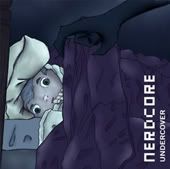
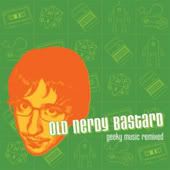

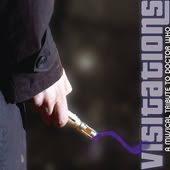
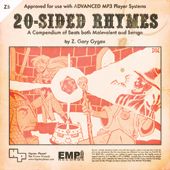
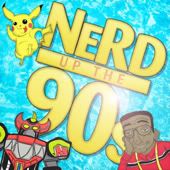







7 comments:
Man, the worst gimmick of all is ninjas.
LOL Ninjas! Seriously though, Masu, you guys are another great example. The ninja shtick is an attention-grabber, but the music stands on its own.
Damn I need a gimmick
I suggest wearing a funny hat. Everybody loves a dude in a funny hat.
The problem with gimmick-focused creativity is that the gimmick often comes to dominate the creation. There are going to be a lot of nerds who prize the sense of community from the use of shared imagery and don't look for anything deeper than that, so artistic quality can go right out the window in favor of shitty retreads that make the proper cues and references with as little creative energy as possible, and even if the artist wants to be creative in exciting ways there's less space for the artist to express themselves because of the gimmick restrictions.
No one is going to disagree with what you're trying to say here, but it seems hilariously pre-emptively defensive for musicians to embrace the 'nerdcore' label (and the label 'nerd' doesn't say anything about you other than that you feel/have felt bullied by other people because of what you enjoy reading/watching/playing, so that's really all that the 'nerdcore' label tells an outsider about the music in question) instead of just creating art which happens to make 'nerdy' references because the artist is 'nerdy'. A gimmick should be more a natural theme and less a self-conscious marketing choice if you're trying to make Good Music, and labels like 'nerdcore' seem like a blinking road hazard sign saying 'if you're not self-conscious about or proud of being labeled a nerd don't bother listening to this music'.
The difference between approaching a nerdy gimmick the right way and the wrong way is the difference between Lupe Fiasco referencing a 1970's anime in the very first rhyme of his semi-breakout guest appearance on "Touch The Sky", even though 98% of people have no idea what Lupin III is, and gladly accepting a genre classification whose name doesn't really say anything at all what your music sounds like or what your message is and just discourages people from listening to your music if they're not nerdy and self-conscious about it.
And most good gimmicks are stylistic gimmicks with some flexibility and ability to evolve into new gimmicks/genres, not 'all of my songs are about Harry Potter' content restrictions. No one actually listens to twelve-tone music either.
And in terms of pro wrestling, consider how often there are reversals and changes of gimmicks to keep things fresh, and that gimmick reversals like Bash at the Beach 1996 are many of the most iconic moments of pro wrestling.
You provide some valid examples, Anonymous Stranger, but you also ignore a few of key points.
Nerds as less a target for what they enjoy than for who they are. Be they physically awkward, socially inept or simply incalculably different, they are bullied because of the person they are underneath their weird obsessions. Those things are merely a coping mechanism, not unlike drugs, used to compensate for a lack of control.
Also, there has been a distinct shift in the nerdcore paradigm over the past few years. Whereas once it was an easy bandwagon on which to jump, now it's slowly becoming cultural shorthand for an outsider movement. Guys like Beefy, who once exercised the term loosely, have become more reserved with invoking the name, and new acts like Doctor Awkward see nerdcore as an extension of their hip-hop as opposed to the sum total of it.
Lastly, I would say that every artist endeavors to make "good music." It is human nature to wish to excel at one's craft. Instead, I believe the focus should be on making true music that is relevant to you or your situation. And as far as nerdcore as a label being a "blinking sign" that wards off/turns off outsiders, it could be argued that this is by design. The concept of a musical style seeking to appeal strictly to a singular element by purposefully alienating others is itself a well worn trope. Everything from black metal to gangsta rap employs this device.
You do make a good point about wrestlers flipping the gimmick, though, although I can't help but notice that gimmick changes (a la Hulk Hogan to Hollywood Hogan) seldom manage to gain genuine traction. That in itself can serve as a caution to musical gimmickry.
Oh, and I salute you allusion to the twelve-tone technique. You win at nerdy music composition sub-references. :)
Post a Comment